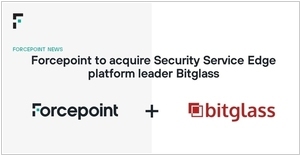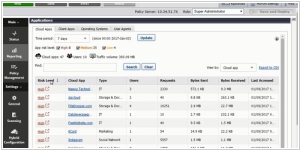Forcepoint vs Fortinet
August 06, 2023 | Author: Michael Stromann
Forcepoint and Fortinet are both prominent cybersecurity companies that offer a range of security solutions, but they have distinct features and approaches to address different cybersecurity needs. One of the key differences between Forcepoint and Fortinet lies in their areas of specialization. Forcepoint focuses on human-centric cybersecurity, emphasizing protection against insider threats and data loss prevention. Their solutions are designed to safeguard against risks arising from employee behavior and data handling, helping organizations protect sensitive information and prevent data breaches. On the other hand, Fortinet is known for its comprehensive network security solutions, including firewalls, intrusion prevention systems, and threat detection. Their expertise lies in securing network infrastructures and defending against external threats such as malware, viruses, and cyberattacks.
Additionally, their deployment models set them apart. Forcepoint offers cloud-based and on-premises solutions, giving organizations the flexibility to choose the deployment method that aligns with their IT infrastructure and security requirements. This hybrid approach is beneficial for businesses with specific compliance or data residency needs. In contrast, Fortinet is a leading provider of unified threat management (UTM) appliances, with an emphasis on hardware-based solutions. They offer a range of appliances that provide multiple security functions in a single device, simplifying network security management and providing comprehensive protection for a variety of network environments.
Furthermore, their global reach and customer base differ significantly. Forcepoint has a strong presence in the government, defense, and critical infrastructure sectors, where insider threats and data protection are critical concerns. They have a strong focus on compliance and data-centric security solutions, making them a preferred choice for organizations operating in highly regulated industries. On the other hand, Fortinet has a broader customer base across various industries, including enterprises, service providers, and small to medium-sized businesses. Their network security solutions cater to a wide range of cybersecurity needs, making them a popular choice for organizations seeking a comprehensive and scalable security solution.
See also: Top 10 Cloud Security Software
Additionally, their deployment models set them apart. Forcepoint offers cloud-based and on-premises solutions, giving organizations the flexibility to choose the deployment method that aligns with their IT infrastructure and security requirements. This hybrid approach is beneficial for businesses with specific compliance or data residency needs. In contrast, Fortinet is a leading provider of unified threat management (UTM) appliances, with an emphasis on hardware-based solutions. They offer a range of appliances that provide multiple security functions in a single device, simplifying network security management and providing comprehensive protection for a variety of network environments.
Furthermore, their global reach and customer base differ significantly. Forcepoint has a strong presence in the government, defense, and critical infrastructure sectors, where insider threats and data protection are critical concerns. They have a strong focus on compliance and data-centric security solutions, making them a preferred choice for organizations operating in highly regulated industries. On the other hand, Fortinet has a broader customer base across various industries, including enterprises, service providers, and small to medium-sized businesses. Their network security solutions cater to a wide range of cybersecurity needs, making them a popular choice for organizations seeking a comprehensive and scalable security solution.
See also: Top 10 Cloud Security Software
Forcepoint vs Fortinet in our news:
2021. Forcepoint to acquire cloud security startup Bitglass

Forcepoint is to acquire Bitglass, a cloud security startup. This acquisition is expected to boost the efforts of the platform security vendor in making advanced data security and threat protection technologies more accessible and user-friendly for organizations. Bitglass, founded in 2013, has developed the Security Service Edge platform, which combines various technologies to secure access to and usage of sensitive data and intellectual property in web and cloud traffic, as well as private data center applications. Forcepoint acknowledged the inclusion of Cloud Access Security Broker, Secure Web Gateway, Zero Trust Network Access, Cloud Security Posture Management products, and Data Loss Prevention capabilities in this platform. Before the acquisition, Bitglass was one of the few Cloud Access Security Broker vendors that had not been acquired yet, alongside Netskope. Notably, Bitglass and Netskope had engaged in legal battles over allegations of patent infringement and theft of confidential information during the past year.




